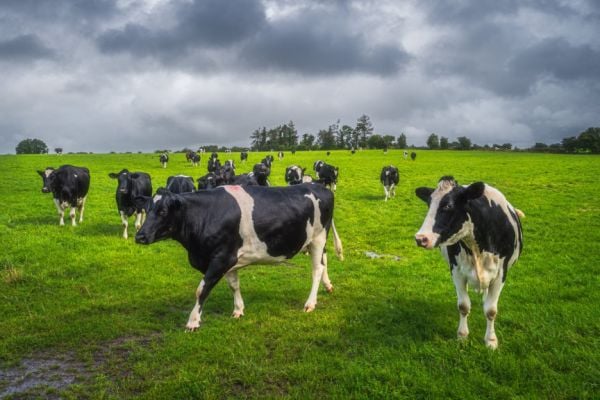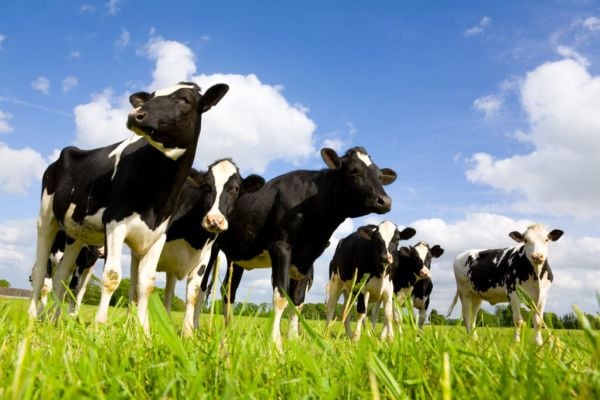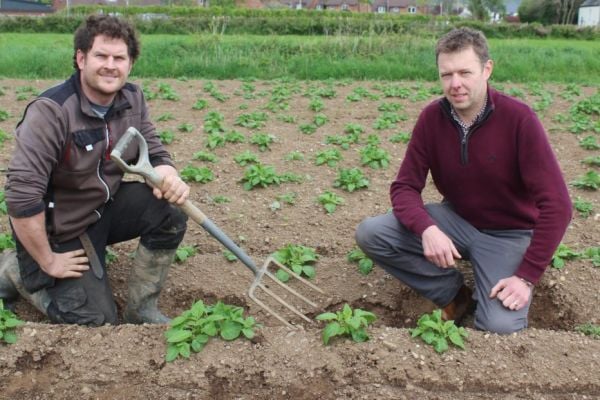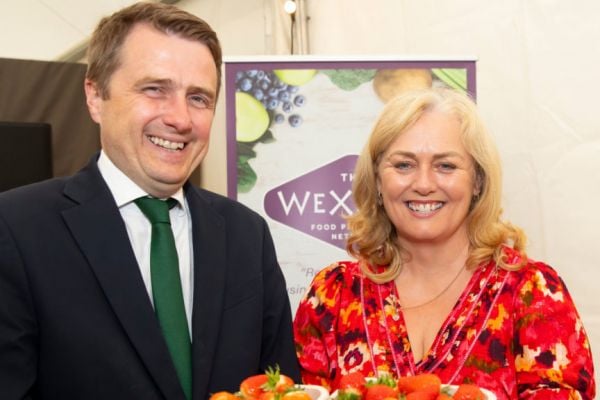On the back of ‘Veganuary’’ - it’s clear that opposed to ditching meat entirely, many consumers are now opting to cut down on their meat intake and alternating between a vegan/vegetarian and meat-based diet. This has given rise to a new type of consumer dubbed the ‘Flexitarian’, writes Donna Ahern
Until recently, vegetarians and vegans were traditionally the only consumers to purchase meatless products, but that has changed significantly over the past couple of years.
The plant-based/meat-free market is expanding in Ireland on the back of a rise in consumers adopting healthier lifestyles.
In response, a number of popular brands and private labels have launched plant-based lines of food, as well as meat-free and diary-free alternatives, to keep up with the demands.
Flexitarian
A plant-based or vegan diet is increasingly being lauded as a healthier and more environmentally sustainable lifestyle.
It appears that meat eating consumers are embracing the ethical and environmental positives of vegan foods, and opting for herbivorous alternatives is increasingly becoming the norm.
As opposed to ditching meat entirely, many consumers are now opting to cut down on their meat intake and alternating between a vegan and meat-based diet. This has given rise to a new type of consumer dubbed the ‘Flexitarian.’
While not everyone desires to fully commit to a 100% vegan lifestyle, concepts such as ‘Meat Free Monday’ or ‘Veganuary’ are driving awareness and encouraging consumers to try alternatives to meat and dairy, even on an ad-hoc basis.
You don’t have to be vegan to eat foods marketed as vegan or plant based. There is no doubt that this is an area with a growing voice that is resonating with today’s consumer.
Suitable for
“It’s difficult to quantify the size of the vegan/plant-based product market as many items are not branded in the product description as specifically vegan but may just be flagged elsewhere on the packaging as ‘suitable for’ vegan/plant based diets,” says Ruth Lloyd-Evans, senior analytics manager for Retail Services Ireland for Nielsen.
According to data sourced from Nielsen, based on the 52 weeks to 3 November, 2019 plant-based/dairy-free milks are a defined product group that is relatively easy to track, and provide a good indication of consumer behaviour.
Non-dairy milk is currently worth €28 million in the grocery market in the Republic of Ireland and is growing year-on-year by +11%, while dairy milks are declining year-on-year by 2%. Non-dairy now accounts for about 7% of all milks sold!
Vegan has gone mainstream and is not confined to the health food store. All of the multiple retailers are responding to the demand for products that are suitable for a vegan diet by carrying branded, and in many cases own-brand, vegan ranges.
Food-to-go
The food-to-go industry has also been active in providing vegan options to consumers. In May 2019, Applegreen were in the media with their €1 limited edition vegan sausage roll, which has since been added to their vegan food range on their website.
In October we also saw the launch of Vegan-Licious@insommnia, when they introduced their vegan sandwich and salad range, while Centra has a hot food vegan range available at a selection of Centra outlets.
Nielsen’s Ruth Lloyd-Evans points to the fact a lot of new products emerged this year in the form of meat substitutes suitable for the vegan diet in the chilled prepared foods segment from brands such as Cauldron, Quorn, Vivera, Dees, and Moodley Manor, to name but a few.
Across chilled and frozen, Nielsen estimates that vegan-specific products (both branded and own brand) are worth in excess of €8.5 million in the latest 52 week period, with year-on-year growth of greater than 50% incremental sales value.
Rebel Whoppers
Heightened concerns about health and the environmental impact of industrial animal farming are pushing plant-based proteins into restaurant menus and chilled meat aisles in stores.
Companies from Beyond Meat Inc to Impossible Foods Inc are competing fiercely for deals with fast-food makers, as plant-based mania spreads across Europe and the US.
In November, Reuters reported that Burger King had rolled out a meat-free version of its Whopper burger in 25 European countries, using patties made by Unilever Plc to strengthen its foothold in the exploding market for plant-based food served in restaurant chains.
Unilever's meat-free brand, The Vegetarian Butcher will supply patties for the 'Rebel Whopper' to over 2,500 stores in countries including Germany, Spain, Poland and Italy.
The burgers will be Burger King's biggest ever product launch in Europe. The Rebel Whopper is now available from Burger Kings outlets across Ireland.
“Demand for plant-based products has increased over the last couple of years and trying to meet that is crucial,” says David Shear, who heads Burger King operations in Europe, the Middle East and Africa.
Shear said in an interview that this initial rollout would eventually expand elsewhere in the region.
Realistic substitute
Recent research carried out by IDTechEx showed that the meat industry is not sustainable. Based in Cambridge in the UK, the independent market research company recently published a new report titled ‘Plant-based and cultured meat 2020: technologies, markets and forecasts in novel meat replacements.’
The report, which was written by technology analyst, Dr Michael Dent showed that meat is a huge business globally, worth over $2 trillion, with global meat consumption doubling over the last 50 years. In 2017, the US alone produced approximately 100 billion lbs of meat, with production growing at a rate of 2% to 3% per year.
However, the industry in its current form is not sustainable. Animal livestock uses a disproportionally large amount of land. Of the 51 million km2 of agricultural land worldwide, 77% is used for livestock and feeding livestock.
Despite this, only 17% of global caloric consumption comes from animals, with plant-based foods supplying 83% of global calorie intake, and only 33% of global protein intake comes from meat and dairy.
Available agricultural land is dwindling, yet the global population is still rising and is expected to reach 10 billion by the year 2050. Feeding this many people will require an increase in global food production of 70%.
Animal agriculture is also damaging to the environment, contributing to greenhouse gas emissions, deforestation, water stress, and environmental pollution. The research showed that we simply cannot afford to continue with the current rate of meat consumption.
Despite this, Dent concluded that the world is very unlikely to become vegetarian. Instead, he says that there is a large opportunity for any company that can create a realistic substitute for meat products.
Two particularly promising industries have grown at a rapid pace over the past few years: plant-based and cultured meat. The rapid rise in consumer demand for vegan products is ensuring that plant-based products are becoming an increasingly competitive category for manufacturers as well as for grocery retailers.
© 2020 Checkout – your source for the latest Irish retail news. Article by Donna Ahern. Click subscribe to sign up for the Checkout print edition.









